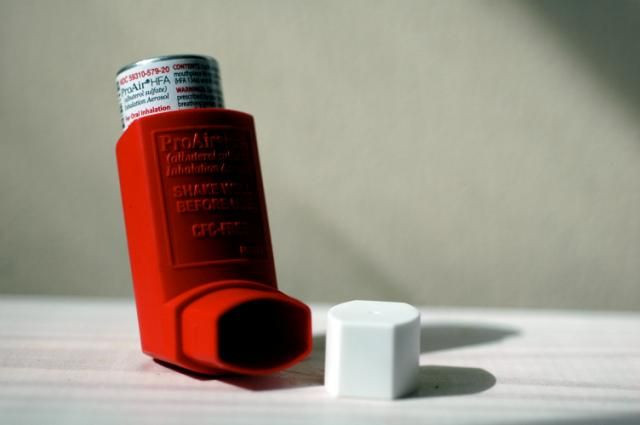Malaria Drug, Artesunate, Brings Asthma Sufferers Breathing Relief With Fewer Side Effects Than Current Treatments

Allergic asthma is one of the most common asthmas, affecting over 50 percent of the 20 million Americans who suffer from asthma, according to the Asthma and Allergy Foundation of America. It’s triggered by typical allergens like dust, pollen, pet dander, and mold, and causes chest tightness, wheezing, and coughing, among other symptoms. Although treatment with corticosteroids like dexamethasone are effective, they come with uncomfortable or severe side effects. A new study finds that there may be a better treatment, and it comes from a malaria medicine.
The study, published in the journal Metabolomics last month, looked at the potential of artemisinins, which are derived from the sweet wormwood plant and are some of the world’s most powerful antimalarials, to relieve asthmatics of chest tightness and the inability to breathe whenever they have an episode. They were especially interested in the semi-synthetic artesunate, which they showed through one of their previous studies was capable of not only fighting malaria, but also fighting cancer and alleviating inflammation.
In their latest study, the researchers from the National University of Singapore showed that artesunate could be used just as effectively as corticosteroids to treat allergic asthma in mice, but with fewer side effects. Artesunate “restored metabolic perturbations in airway inflammation, which correlated well with its anti-inflammatory actions,” they wrote. When compared to dexamethasone, which is the most potent corticosteroid on the market, they found that dexamethasone failed to reduce fluid levels in the lungs, and caused “widespread changes to metabolites irrelevant to asthma development.”
The researchers concluded that “the findings further strengthen the therapeutic value of using artesunate to treat allergic asthma.” If further research can show that asthmatic patients fare better with this treatment, then they’ll be able to live without the side effects of dexamethasone that tend to emerge over the long term. These side effects include upset stomach, vomiting, insomnia, depression, easy bruising, irregular menstrual periods; and in more severe cases, vision problems and rashes.
Corticosteroids are the go-to drug for asthma right now. They work by mimicking the effects of the natural hormones the body produces in the adrenal gland. Besides reducing inflammation, which is good for both asthma and arthritis, they’ve also been used to treat eye conditions, bowel disorders, and certain types of cancers.
Source: Ho W, Xu Y-J, Xu F, et al. Anti-malarial drug artesunate restores metabolic changes in experimental allergic asthma. Metbaolomics. 2014.



























